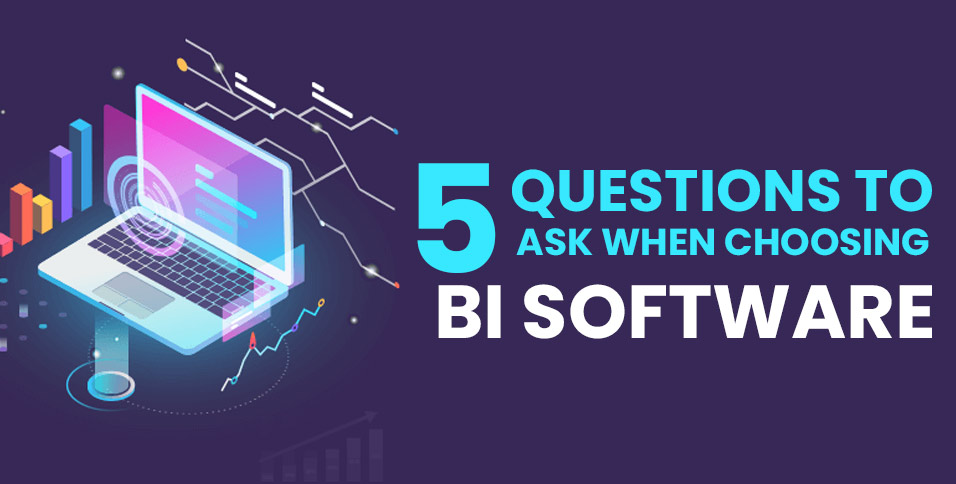Data is the most valuable resource any business leader can access. The more information you have, about the efficiency of your processes, the performance of your team, and even your customers, the more you can make intelligent decisions that boost profit and revenue. Business Intelligence software, designed to help you collect, consolidate, and use the data available throughout your enterprise, can be a valuable tool for turning raw information into actionable insights.
However, as demand for BI solutions has grown, the number of options on the market has increased too. While it might be tempting to automatically choose one of the most popular tools on the market, such as Microsoft Power BI, it’s worth noting that one of the financial habits of a successful business is knowing that popularity isn’t everything. Making sure you know how to assess each of your options carefully is crucial to purchasing a product that delivers genuine ROI (Return on Investment). Here are the key questions you should ask when sorting through your options.
The Core Questions to Ask When Assessing BI Tools
First, it’s worth noting there are resources out there that can help you to make a more intelligent decision when it comes to refining your software options. Guides and comparison articles on the best Microsoft Power BI alternatives can help you to determine how each available tool will impact your company’s results, and insights. However, even when you’re utilizing these resources, it’s helpful to have a good idea of the priorities you’re going to be focusing on. Ask these questions before you start searching:
- How much technical knowledge do you have? Some BI tools require a basic knowledge of coding, programming, and the use of APIs for integrations. If you don’t have a lot of technical experts in-house, it might be best to avoid open-source or complex tools.
- How big is your company? The larger your company, the more data you’re likely to create daily. A larger enterprise may need to choose a highly scalable cloud-based tool, to ensure they can continue to securely collect and store data consistently.
- What’s your budget? The benefits of BI tools can quickly outweigh the costs. However, that doesn’t mean you can necessarily afford to spend a fortune. Remember, the more advanced features you want, from AI insights to automation, the more you can expect to pay.
- What are your reporting requirements? When it comes to converting raw data into visualizations like graphs and custom reports, how much freedom do you want? Some tools come with automated report creation tools, while others allow you to create eye-catching client facing charts, presentations, and more.
- What support will you need? How much guidance are you going to need when it comes to tech implementation and configuration? Some open-source tools require you to do most of the work of setting up and managing your technology yourself. However, there are SaaS providers who can offer more hands-on, consistent support.
Choosing the Right BI Technology
There’s no one-size-fits-all strategy to choosing the right Business Intelligence software for your company. The right solution for you will depend on numerous factors, from the size of your business to your ability to utilize complex technology. Remember to sort through all of your options carefully, looking at everything from your data visualization needs, to the integration options you can access between your BI solution and critical software tools, such as UCaaS platforms, CRMs, and ERPs.















